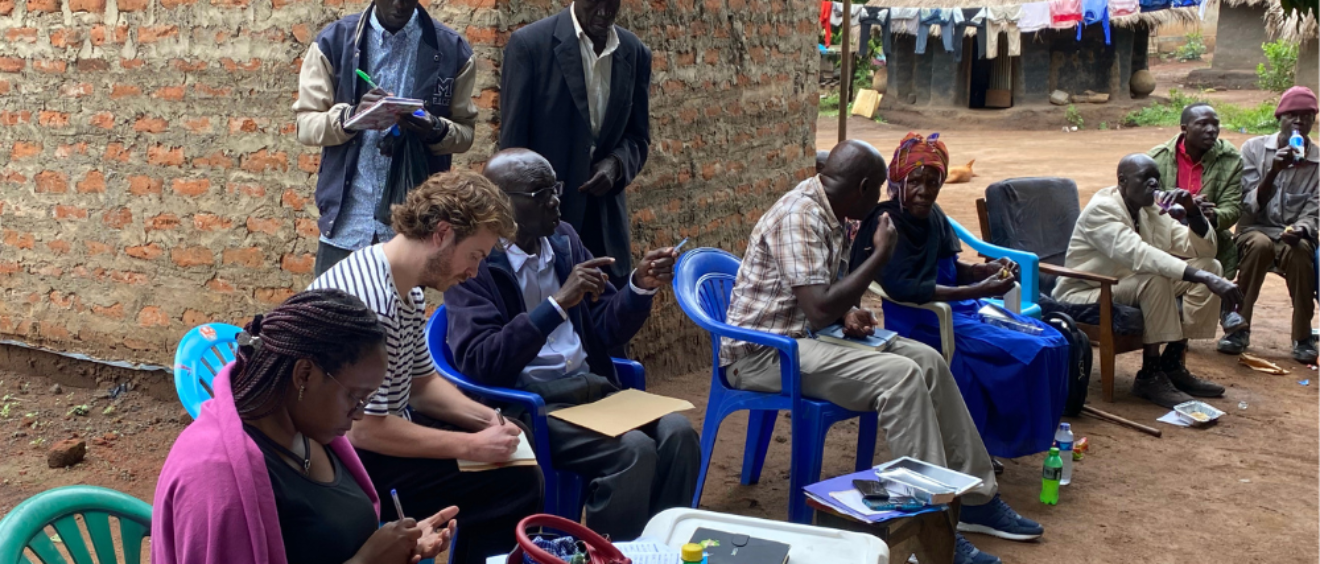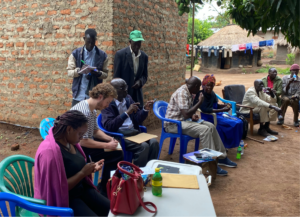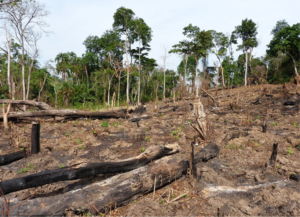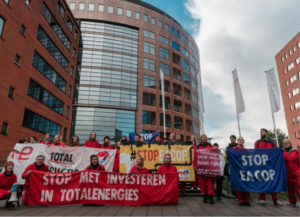
Joining voices to advance advocacy and security in a hostile environment
In many countries around the world, environmental justice organisations are working under increasingly difficult circumstances. Many countries have enacted new laws and regulations to limit the activities and funding of civil society groups. Surveillance and harassment by government authorities, including the police and the military, has intensified. From one minute to the next, organisations’ offices may be raided or their bank accounts frozen or staff held in custody.
Uganda is one of many countries where the situation for environmental organisations has deteriorated. Despite the severe impacts of climate change in the country, including drought and flooding, the Ugandan government and foreign investors are heavily investing in oil, gas and large-scale hydropower projects that violate the rights of Ugandan communities and devastate ecosystems. Efforts to contest harmful policies and projects have been met harshly. Both ENDS’s partners have faced harassment for their indispensable work to promote human rights, environmental justice, and a just energy transition in line with the Paris climate agreement.
In 2021, Uganda’s National NGO Bureau ordered 54 civil society organisations to halt operations. The list included Africa Institute for Energy Governance (AFIEGO), a long-term partner of Both ENDS, which works to promote community-based renewable energy solutions, such as off-gird solar power. The same year, AFIEGO’s offices were raided and staff members unlawfully arrested (and later released). Thanks to national and international pressure, AFIEGO was removed from the government blacklist. But environmental justice work in Uganda remains dangerous.
A proactive approach
As such incidents become increasingly common, Both ENDS has taken steps to develop a more systematic and proactive approach to supporting partners in addressing safety and security issues. Among other things, flexible financial resources and strong networks are important for enabling partners working in hostile contexts to safely carry out their work. To that end, in 2022, we successfully mobilised resources to support six Ugandan organisations – diverse partners of Both ENDS – to strengthen collaboration, increase their visibility, and carry out joint advocacy towards a green and sustainable future.
In addition to AFIEGO, the project involves Environment Governance Institute (EGI), Friends with Environment in Development (FED), the Center for Food and Adequate Living Rights (known as CEFROHT), Southern and Eastern Africa Trade Information and Negotiations Institute – Uganda (SEATINI) and Witness Radio Uganda, a network of human rights investigative journalists, lawyers, and social workers using legal aid support and media to promote and protect economic, social and cultural rights and development in Uganda.
An important element of the project is stimulation of information sharing and mutual support around safety and security issues. In 2022, project partners organised a safety and security training where they exchanged best practices on measures to reduce risk to staff and other environmental and human rights defenders working with communities in Uganda’s oil and gas regions. The partners share up-to-date intelligence about potential security risks in the regions where they work. CEFROHT, which specialises in litigation, has provided legal support to project partners when staff were illegally detained during a field visit.
Sharing expertise
The six partners have different strengths, approaches and strategies, from expertise in human rights law, to lobbying, to working directly with communities who have been displaced by large, destructive energy projects. The collaboration has facilitated exchange of expertise and helped strengthen their work. Together, the groups are defending displaced communities, promoting clean energy and livelihoods for communities, as well as promoting agroecology and the right to food. FED, for example, which works with people affected by the Karuma hydropower dam project, has linked up with AFIEGO to enhance efforts to bring solar power to the communities. Witness Radio and CEFROHT are training journalists and lawyers on key issues related to human rights and fossil fuel and large hydropower development. Meanwhile, SEATINI is raising awareness about harmful trade and investment agreements like the Energy Charter Treaty, which threatens Uganda’s ability to transition to just and clean energy.
The collaboration in Uganda has also strengthened collaboration within Both ENDS; the project brings together staff who specialise in different topics – climate change, financial flows, trade and investment agreements – and enables them to see with greater clarity how these interlinked issues are playing out in Uganda and how best to support the diverse partners they work with. The Uganda collaboration, which launched in 2022, is already showing positive results. Environment Governance Institute reports that its engagement in local-to-global and global-to-local partnerships as part of the project has helped enhance the group’s safety.
Amplifying Ugandan voices in the Netherlands
One of the key problems that Both ENDS’s Ugandan partners are addressing is the planned 1,445 km long East African Crude Oil Pipeline (EACOP), a project of TotalEnergies and the Chinese National Offshore Oil Cooperation (CNOOC). Preparations for construction of the pipeline are already causing human rights violations and serious environmental pollution, and much more is to come if the project continues. It is estimated that over 100,000 people across Uganda and Tanzania will lose the land they rely on for their livelihoods, and many will be forcibly removed from their homes to make way for the pipeline. With the pipeline set to run through several nature reserves and wildlife habitats, and alongside Lake Victoria, the African continent’s largest freshwater reserve, the environmental and safety impacts and risks are enormous.
Both ENDS is playing its part in the global effort to stop EACOP. It has helped convene an ad hoc coalition of organisations in the Netherlands – including our Fair, Green and Global Alliance partners Milieudefensie, SOMO and TNI – that are working together to raise awareness and put pressure on TotalEnergies to stop the project. In September, during TotalEnergies’ ‘Investors Day’, Both ENDS and allies protested under the #StopEACOP banner at the company’s office in The Hague, while others participated in similar actions in Paris and New York. The action brought public attention to the project with an article in the Volkskrant.
We have also called on Dutch pension funds, which have some €2.1 billion invested in TotalEnergies, to use their power to stop the project or divest from TotalEnergies. In meetings with the funds’ asset managers, Both ENDS, together with a Ugandan activist, urged the investors to ensure respect for human rights and environmental sustainability in their investments. Concrete action from the five investors has yet to be seen, but they did commit to raising the issue with TotalEnergies. At least one asset management company has shown what should be done: in April, the Dutch company ACTIAM announced that it had pulled out of all investments from TotalEnergies and placed the company on an exclusion list over concerns about the EACOP project. We will continue to appeal to other investors to follow their lead.

Both ENDS and partners at a meeting with a project affected community in Uganda

Oil developments linked to EACOP lead to deforestation in Bugoma forest, Uganda

In September 2022, Both ENDS gathered a coalition of civil society organisation for a protest action against EACOP in front of TotalEnergies’ Dutch office. Photo by Dorotea Pace
